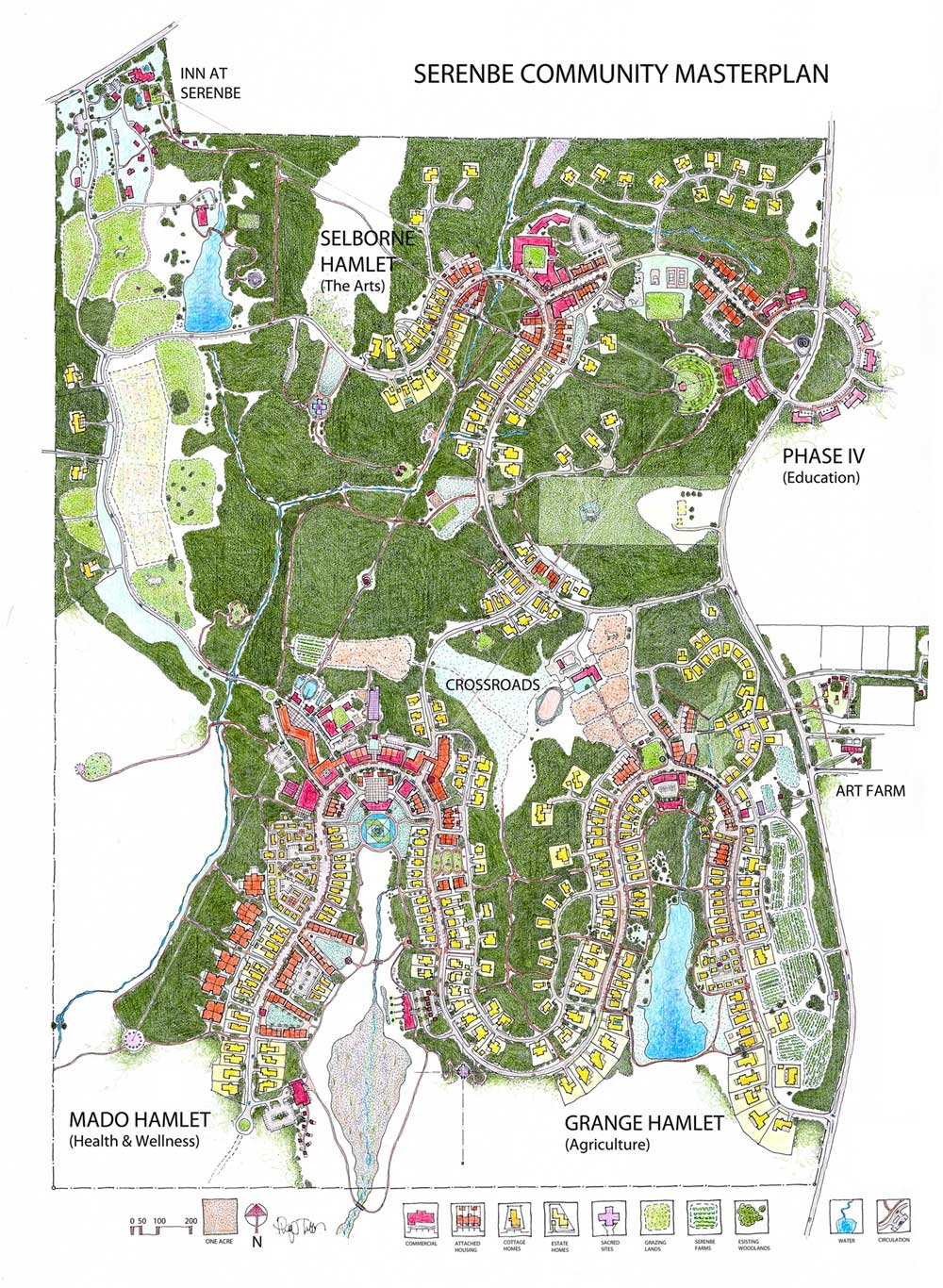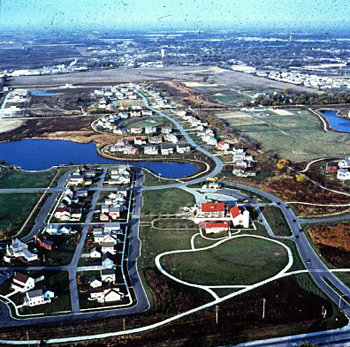This has been my dream for our area...if a farm needs to sell to development, why not turn it into an agrihood? The idea is to not just sell to a developer and squeeze as many houses into it as possible but to mesh it with both homes and farmland. The homes would have smaller footprints giving way to farmland for CSAs/horse pasture/pond for community water and trails. The benefit can go to either the developer or the farmer in the form of a conservation easement in addition to the sale of the development rights for the remaining land. For example, instead of building 100 homes on one-acre (0.4 ha) lots, an agrihood might include 100 homes on quarter-acre (0.1 ha) lots with 75 acres (30 ha) of conserved open space and/or farmland. significantly from traditional master-planned communities.
I always thought it would be beautiful to have cottage size homes to backup to horses and farmland. We have some neighborhoods that have touched on this concept in various capacities such as Elk Grove with its community pond and trails. The layout of the lots allows for expansive views of surrounding farmlands and mountain views. Middle Creek Parklands has also created a neighborhood layout backing to open space with trails. Our land trust, Gallatin Valley Land Trust will be adding more trails to this area to give residents the opportunity to walk to school. A higher-end community, Old Farm also embraced this concept; however, the parcels are 20 acres with some hayfields winding throughout the area as well as some of the existing farm buildings still intact.
Let's take it a step further and create communities that continue the farming and wildlife corridors while preserving the viewsheds. This concept will be a win-win for everyone and will have more saleability for years to come. Here is an example of what has been done in other parts of the country, Serenebe named for Serene Be. "The vision for the community of Serenbe was born in an effort to protect the beautifu l rural land just outside of Atlanta known as Chattahoochee Hill Country. The first house at Serenbe was built in 2004 and today the community is home to over 650 residents. Serenbe has won numerous awards including the Urban Land Institute Inaugural Sustainability Award, the Atlanta Regional Commission “Development of Excellence“ and EarthCraft named Serenbe the “Development of the Year.”
l rural land just outside of Atlanta known as Chattahoochee Hill Country. The first house at Serenbe was built in 2004 and today the community is home to over 650 residents. Serenbe has won numerous awards including the Urban Land Institute Inaugural Sustainability Award, the Atlanta Regional Commission “Development of Excellence“ and EarthCraft named Serenbe the “Development of the Year.”
Another unique endeavor is Prairie Crossing in Illinois, "Prairie Crossing is a master-planned conservation community, and one of the first modern developments in the country planned with a working organic farm. The initial vision for the community was generated by a group of neighboring landowners committed to the conservation of the rural character of the area east of Prairie Crossing, which included wetlands, woods, rolling farmland, and farmhouses.
Conservationists Gaylord and Dorothy Donnelley bought the property in 1987. They formed Prairie Holdings Corporation with a group of neighbors and asked George and Vicky Ranney to d evelop the land, hoping to provide an alternative to the prevailing pattern of suburban sprawl. The Ranneys assembled a planning team and began developing the community in 1992, based on 10 Guiding Principles.
evelop the land, hoping to provide an alternative to the prevailing pattern of suburban sprawl. The Ranneys assembled a planning team and began developing the community in 1992, based on 10 Guiding Principles.
One hundred acres of the 675 acres of land was reserved for the Prairie Crossing Farm, a working organic farm which is protected by a conservation easement. Eventually, ownership of the farmland was transferred from Prairie Holdings Corporation to the Liberty Prairie Foundation, a 501(c)(3) private operating foundation. The community is over 20 years old and still thriving today.
Here are 10 agrihoods to review: http://seedstock.com/2017/10/02/10-agrihoods-growing-across-the-country/
I am in the process of creating a Farm/Ranch Appreciation Day to bring the community to the farm. The day would include volunteering on the farm, signing up for future farm volunteering, signing up for CSAs, 4H animals, learning about your food, items made from farm animals and crops by-products like wool/felt, oil, soap, lotions, herbal tinctures, etc., farm activities and when conservation is beneficial. Stay tuned...
Written by: Courtney King, Advisor|Realtor with a passion for farms

Leave A Comment